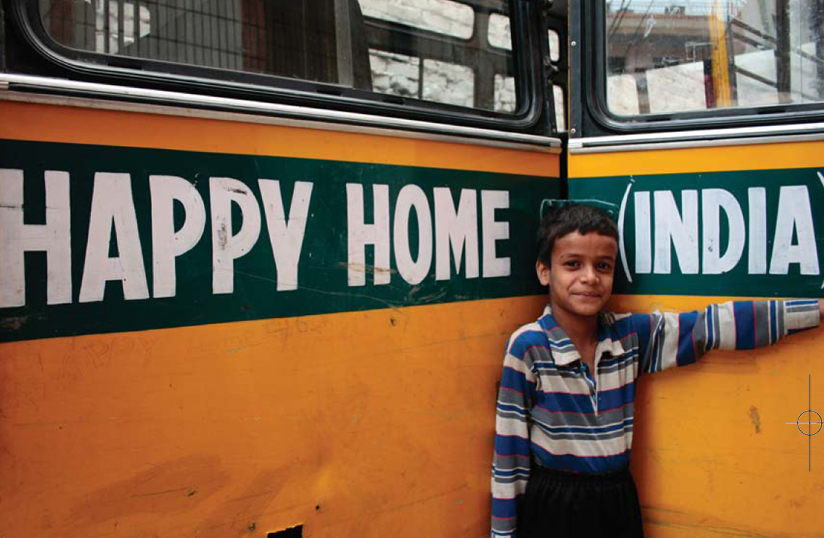|
|
 |

Times of India 26 Sept 2013, New Delhi P19
Govt may put off tough decisions:
WHY NOT DELIMITATION COMMISSION?


Another issue emphasized before the
Committee was that a number of
Parliamentary and Assembly
constituencies with substantial Muslim
voter population are reserved for SCs
while the SC population was not high
there. Contrarily, constituencies with
comparatively lesser Muslim voter
population remain unreserved even though
they have sizeable SC population. It was
suggested to the Committee that it would
be more equitable to reserve those
constituencies where voter population of
SCs is high rather than those where it
is low and, instead, Muslim presence is
high. (See Chapter-2)
This matter is in the purview of
Delimitation Commission. The Committee
hopes that it would receive the
attention of the Government immediately
because the Delimitation Commission is
at present engaged in this exercise and
evidently any suggestion or any exercise
to be done by it has to be undertaken
during the current term of the present
Delimitation Commission.
Establishing a More Rational Procedure
for Delimitation of Constituencies
The Committee also recommends the
elimination of the anomalies with
respect to reserved constituencies
under the delimitation schemes discussed
in Chapter 2. A more rational
delimitation procedure that does not
reserve constituencies with high
minority population shares for SCs will
improve the opportunity for the
minorities, especially the Muslims, to
contest and get elected to the Indian
Parliament and the State Assemblies.
Apart from these two initiatives it is
important to evolve other methods to
enhance political participation of the
Community.
Page 24-25
4.5 Political
Participation,
Governance and Equity
Margin Note: A
number of Muslim
concentration assembly
constituencies have been
declared as ‘reserved’
by the Delimitation
Commission
As has been indicated
earlier in the chapter,
many persons the
Committee interacted
with, felt that lack of
adequate “Muslim voice”
in the government, even
in local self government
bodies and similar other
grassroots institutions
has resulted in a
situation that Muslims
have lagged behind. In
their view, political
participation and
representation in
governance structures
are essential to achieve
equity. It was alleged
by many that
participation is denied
to Muslims through a
variety of mechanisms.
Two specific instances
were cited in this
context:
-
Non-
Inclusion
of
Muslims
in
the
Voter
Lists: It
was
pointed
out
that
many
names
of
Muslims
were
missing
in
the
voter
lists
of a
number
of
states.
Not
only
does
this
dis-empower
them,
it
also
makes
them
ineligible
as
beneficiaries
of
government
schemes.
-
Notification
of
Reserved
Constituencies: Attention
of
the
Committee
was
drawn
to
the
issue
of
Muslim
concentration
assembly
constituencies
being
declared
as
‘reserved’
constituencies
where
only
SC
candidates
can
contest
elections.
By
this
move,
it
was
argued
that
Muslims
are
being
systematically
denied
political
participation.
While
the
Committee
could
not
look
into
the
issue
of
voter
lists,
an
effort
was
made
to
ascertain
the
facts
on
the
issue
of
reserved
constituencies.
Our
analysis
relating
to
the
reserved
constituencies
for
the
SC
candidates
in
three
states
of
Uttar
Pradesh,
Bihar
and
West
Bengal(see
Appendix
2.1)
suggests
that
there
is
truth
in
the
allegation
above7.
[7. Data relating to the reserved constituencies for the SC candidates in three states of Uttar Pradesh, Bihar and West Bengal was analysed by the Committee (Appendix Table 2.2). These states have a relatively large share of the Muslim population in India. The data shows that constituencies which have been declared reserved for SCs by the Delimitation Commission in these three states are by and large those constituencies where Muslims live in greater numbers often more than 50 per cent as well as their proportion in the population is higher than that of SCs. On the other hand, there are quite a large number of other constituencies within the respective states, where the share of SCs is large, often closer to or even more than one half but these are declared as 'un-reserved'. Arguably, this can be seen as discriminatory and certainly reduces the opportunities that Muslims have to get elected to democratic institutions.]
Also, please read: UPA's Last Window of Opportunity - Item 4(b)
http://twocircles.net/2013jul22/upas_last_window_opportunity.html
|
|
|
|

